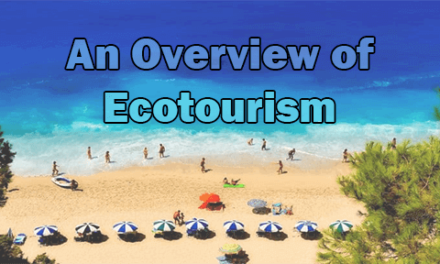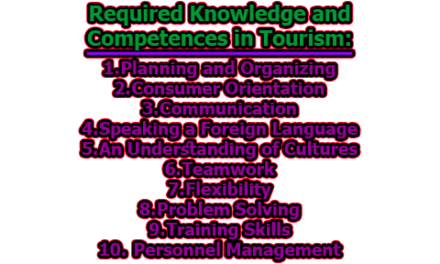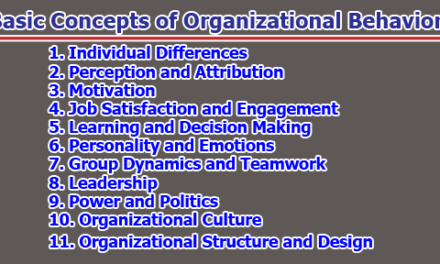New Trends and Forms of Education in Tourism:
Tourism is a vital sector in many economies around the world, accounting for a significant portion of national revenue and employment. The industry has undergone significant changes over the past few decades, with new trends and forms of education emerging. These trends reflect the evolving needs and preferences of tourists, as well as the challenges facing the industry. This article explores new trends and forms of education in tourism, with a focus on tourism and sustainability, accessibility, peace, technology, sports, health, nature, accommodation, entertainment, and business tourism.
1. Tourism and Sustainability: Sustainability has become a critical issue in tourism, as travelers seek to reduce their environmental impact and support destinations that prioritize sustainability. Sustainable tourism practices can help protect natural resources, preserve cultural heritage, and promote economic development that benefits local communities. Many tourism destinations are adopting sustainable practices, such as using renewable energy sources, reducing waste, and promoting responsible tourism behavior among visitors.
Sustainable tourism education programs are becoming increasingly popular, as travelers seek to learn about sustainable tourism practices and how they can support them. These programs offer courses on topics such as sustainable tourism management, environmental conservation, and cultural preservation. Many universities and colleges also offer degree programs in sustainable tourism, which can prepare students for careers in the industry.
2. Tourism and Accessibility: Accessibility is another key trend in tourism, as travelers with disabilities seek to participate in tourism activities and access tourist destinations. The tourism industry is working to improve accessibility by making accommodations, transportation, and tourist attractions more accessible to people with disabilities. This includes providing wheelchair ramps, audio guides, and other accommodations to make travel more comfortable and accessible.
Tourism education programs are also addressing accessibility, with courses on disability awareness and accessible tourism practices. These programs teach students about the challenges facing travelers with disabilities and provide strategies for making tourism destinations more accessible. Graduates of these programs can pursue careers in accessible tourism management or become advocates for accessible tourism.
3. Tourism and Peace: Tourism can also contribute to peace and conflict resolution, as travelers experience different cultures and build connections with people from around the world. Tourism can help promote cultural understanding and mutual respect, which can help reduce tensions and conflicts. Tourism education programs are beginning to recognize the potential of tourism for peacebuilding, offering courses on topics such as intercultural communication, conflict resolution, and peacebuilding.
4. Tourism and Technology: Technology is transforming the tourism industry, with innovations such as online booking, mobile apps, and virtual reality experiences. These technologies are making it easier for travelers to plan and book their trips, as well as providing new ways to experience tourism destinations. Technology is also helping tourism businesses to streamline operations and improve customer service.
Tourism education programs are keeping pace with these technological advancements, offering courses on topics such as tourism technology, digital marketing, and social media management. These programs can prepare students for careers in tourism technology management, digital marketing, or social media management.
5. Tourism and Sports: Sports tourism is a growing segment of the tourism industry, as travelers seek to participate in or watch sports events around the world. Sports tourism can include events such as the Olympics, soccer matches, and golf tournaments. Sports tourism can generate significant economic benefits for destinations, as well as promote physical activity and healthy lifestyles.
Tourism education programs are responding to the growth of sports tourism, offering courses on topics such as sports tourism management, event planning, and sports marketing. These programs can prepare students for careers in sports tourism management, event planning, or sports marketing.
6. Tourism and Health: Health and wellness tourism is another growing trend in the tourism industry, as travelers seek to improve their physical and mental health through travel. Health and wellness tourism can include activities such as yoga retreats, spa vacations, and medical tourism. Health and wellness tourism can promote healthy lifestyles, as well as generate significant economic benefits for destinations.
Tourism education programs are recognizing the potential of health and wellness tourism, offering courses on topics such as health and wellness tourism management, medical tourism, and alternative therapies. These programs can prepare students for careers in health and wellness tourism management, medical tourism management, or alternative therapy practices.
7. Tourism and Nature: Nature tourism is a popular segment of the tourism industry, as travelers seek to experience natural beauty and wildlife around the world. Nature tourism can include activities such as hiking, camping, and wildlife safaris. Nature tourism can promote environmental conservation and preservation, as well as generate significant economic benefits for destinations.
Tourism education programs are addressing the growing interest in nature tourism, offering courses on topics such as ecotourism, environmental conservation, and wildlife management. These programs can prepare students for careers in nature tourism management, environmental conservation, or wildlife management.
8. Tourism and Accommodation: Accommodation is a critical aspect of tourism, as travelers seek comfortable and convenient places to stay during their trips. The accommodation sector has undergone significant changes in recent years, with the rise of alternative accommodation options such as Airbnb and vacation rentals. These options offer travelers more flexibility and often lower prices than traditional hotels.
Tourism education programs are adapting to these changes in the accommodation sector, offering courses on topics such as hotel and lodging management, vacation rental management, and hospitality management. These programs can prepare students for careers in hotel and lodging management, vacation rental management, or hospitality management.
9. Entertainment Tourism: Entertainment tourism is a growing segment of the tourism industry, as travelers seek to experience entertainment and cultural attractions around the world. Entertainment tourism can include activities such as visiting theme parks, attending concerts or festivals, and experiencing local cultural events. Entertainment tourism can generate significant economic benefits for destinations, as well as promote cultural exchange and appreciation.
Tourism education programs are recognizing the potential of entertainment tourism, offering courses on topics such as entertainment tourism management, event planning, and cultural tourism. These programs can prepare students for careers in entertainment tourism management, event planning, or cultural tourism management.
10. Business Tourism: Business tourism is another important segment of the tourism industry, as travelers seek to attend conferences, trade shows, and other business-related events around the world. Business tourism can generate significant economic benefits for destinations, as well as promote knowledge exchange and networking opportunities.
Tourism education programs are responding to the growth of business tourism, offering courses on topics such as conference and event management, business travel management, and corporate hospitality. These programs can prepare students for careers in conference and event management, business travel management, or corporate hospitality.
At the end of the day, we can say that the tourism industry is constantly evolving, with new trends and forms of education emerging to address the changing needs and preferences of travelers. Sustainability, accessibility, peace, technology, sports, health, nature, accommodation, entertainment, and business tourism are just a few of the trends shaping the industry today. Tourism education programs are adapting to these changes, offering courses and degree programs that prepare students for careers in the tourism industry. As the industry continues to grow and evolve, tourism education will play a critical role in shaping its future.
References:
- Buhalis, D., & Darcy, S. (Eds.). (2011). Accessible tourism: concepts and issues. Channel View Publications.
- Bieger, T., Wittmer, A., & Wittmer, D. (Eds.). (2006). The economics of leisure and tourism. Channel View Publications.
- Cooper, C., Fletcher, J., Fyall, A., Gilbert, D., & Wanhill, S. (Eds.). (2018). Tourism: principles and practice. Pearson.
- Hall, C. M., & Page, S. J. (Eds.). (2014). The geography of tourism and recreation: Environment, place, and space (4th ed.). Routledge.
- Jamal, T., & Robinson, M. (Eds.). (2010). The SAGE Handbook of tourism studies. SAGE Publications.
- McCabe, S., & Johnson, P. (Eds.). (2013). The Routledge Handbook of tourism research. Routledge.
- Mowforth, M., & Munt, I. (2015). Tourism and sustainability: Development, globalization, and new tourism in the third world (4th ed.). Routledge.
- Sigala, M. (Ed.). (2016). Tourism and technology. Springer.
- Weaver, D. B., & Lawton, L. J. (Eds.). (2014). Tourism management (5th ed.). Wiley.
- World Tourism Organization (2020). Global Guidelines to Restart Tourism.
- Gretzel, U., Sigala, M., Xiang, Z., & Koo, C. (Eds.). (2015). Social media in travel, tourism, and hospitality: Theory, practice, and cases. Ashgate Publishing.
- Sharpley, R., & Telfer, D. (Eds.). (2015). Tourism and development: Concepts and issues. Channel View Publications.
- Poria, Y., Butler, R., & Airey, D. (Eds.). (2003). Tourism, religion, and spiritual journeys. Channel View Publications.
- Hall, C. M., Timothy, D. J., & Duval, D. T. (Eds.). (2012). Safety and security in tourism: relationships, management, and marketing. Routledge.
- Liu, Z., & Li, X. (Eds.). (2016). Tourism and China’s development: policies, regional economic growth, and ecological civilization. Springer.
- Ritchie, J. R., & Crouch, G. I. (Eds.). (2003). The competitive destination: A sustainable tourism perspective. CABI Publishing.
- Williams, P. W., & Ziffer, K. A. (Eds.). (2017). The Routledge Handbook of hospitality studies. Routledge.
- Page, S. J., & Connell, J. (Eds.). (2010). Tourism: A modern synthesis. Cengage Learning.
- Uysal, M., & Perdue, R. R. (Eds.). (2012). Handbook of tourism and quality-of-life research: Enhancing the lives of tourists and residents of host communities. Springer.
- Weaver, D. B., & Lawton, L. J. (Eds.). (2014). Tourism management (5th ed.). Wiley.

Library Lecturer at Nurul Amin Degree College










